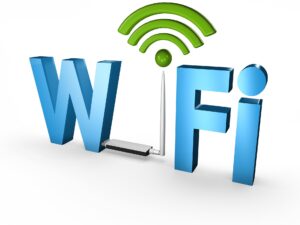Mobile Networks

Mobile networks are cellular networks that use radio waves to connect devices to the internet. They are operated by mobile network providers and require a mobile device, such as a smartphone or tablet, with a SIM card to connect to the network. Mobile networks use a range of different technologies, such as 3G, 4G, and 5G, to provide internet access.
Advantages of Mobile Networks
- Portability: One of the biggest advantages of mobile networks is their portability. You can access the internet from almost anywhere as long as you have a mobile device and there is network coverage.
- Convenience: Mobile networks are convenient as you don’t need to rely on Wi-Fi hotspots to connect to the internet. You can connect to the internet wherever there is network coverage.
- Security: Mobile networks are generally more secure than public Wi-Fi networks as they use encryption to protect your data.
- Roaming: Many mobile networks offer roaming services, which allow you to use your phone in other countries without incurring high roaming charges.
Disadvantages of Mobile Networks
- Limited Data: Mobile networks are often limited by data caps or throttling, which can limit your usage of the internet.
- Slower Speeds: Mobile networks can be slower than Wi-Fi networks, especially in areas with poor network coverage.
- Cost: Mobile networks can be more expensive than Wi-Fi networks, especially if you go over your data limit.
- Battery Life: Using mobile networks can drain your device’s battery faster than using Wi-Fi networks.
Wi-Fi

Wi-Fi is a wireless networking technology that allows devices to connect to the internet without the use of cables. Wi-Fi uses radio waves to transmit data over short distances, typically within a building or a specific area.
Advantages of Wi-Fi
- Speed: Wi-Fi networks are often faster than mobile networks, especially in areas with good signal strength.
- Unlimited Data: Wi-Fi networks often provide unlimited data usage, so you can use the internet without worrying about data caps or throttling.
- Cost: Wi-Fi networks are often cheaper than mobile networks, especially if you have access to free Wi-Fi hotspots.
- Range: Wi-Fi networks can have a range of up to several hundred feet, depending on the strength of the signal.
- Multiple Devices: Wi-Fi networks allow multiple devices to connect to the internet at the same time, making it convenient for households or businesses with multiple devices.
Disadvantages of Wi-Fi
- Security: Wi-Fi networks can be less secure than mobile networks, especially public Wi-Fi networks that do not use encryption.
- Limited Range: Wi-Fi networks have a limited range, so you need to be within the range of the network to connect to the internet.
- Reliance on Hotspots: Wi-Fi networks rely on Wi-Fi hotspots, which may not be available in all locations.
- Interference: Wi-Fi networks can be affected by interference from other wireless devices, such as microwaves or Bluetooth devices.
Both mobile networks and Wi-Fi have their advantages and disadvantages. Mobile networks are more portable and convenient but can be more expensive and have limited data. Wi-Fi networks are often cheaper and provide unlimited data, but can be less secure and have limited range. When choosing between mobile networks and Wi-Fi, consider your usage needs and the available options in your area to make an informed decision. Additionally, it’s important to keep in mind security measures, such as using strong passwords and avoiding public Wi-Fi networks without encryption, to protect your personal information and data.
